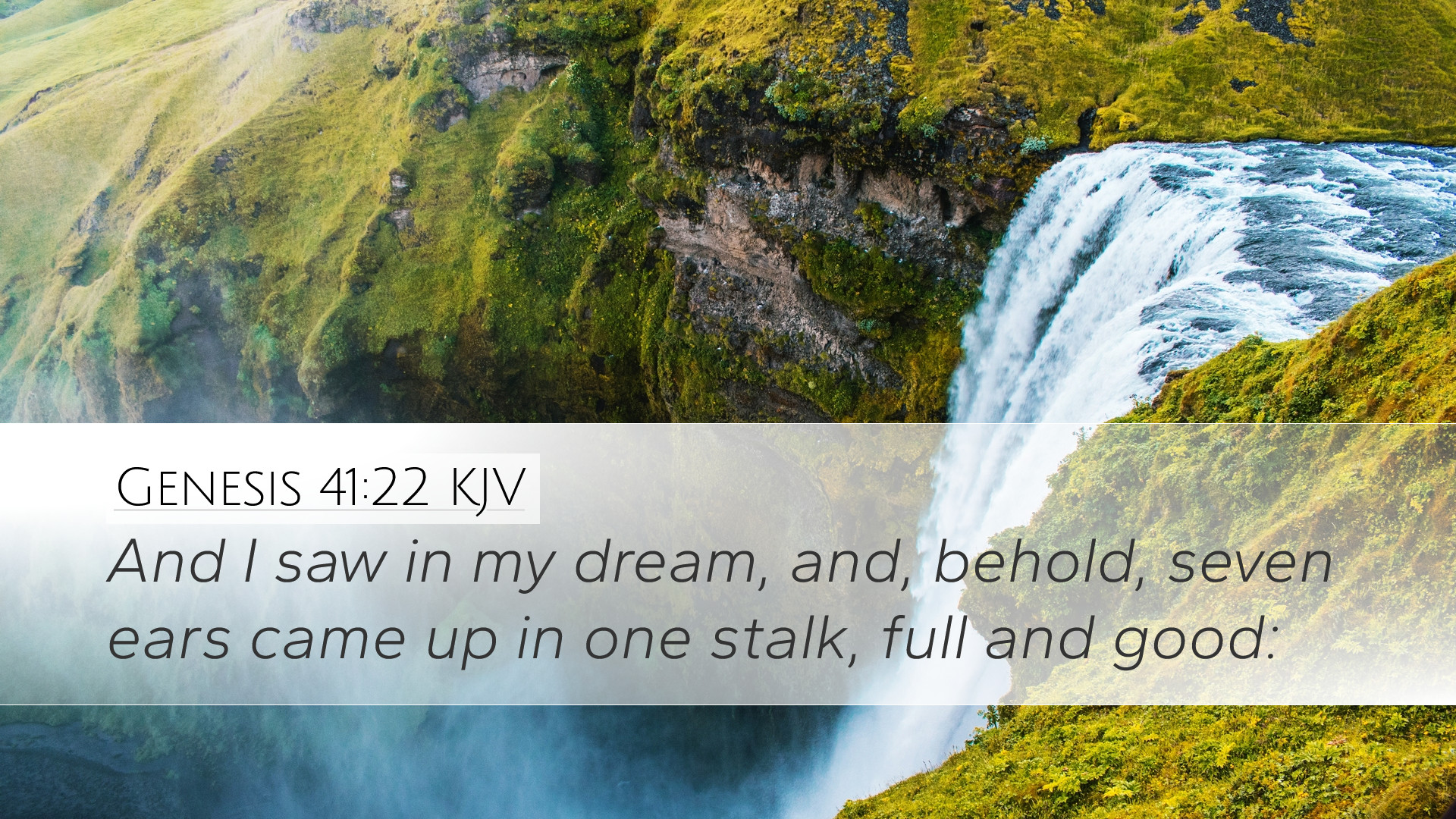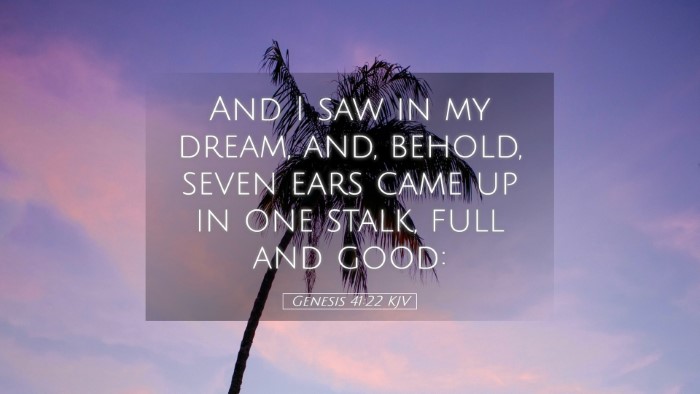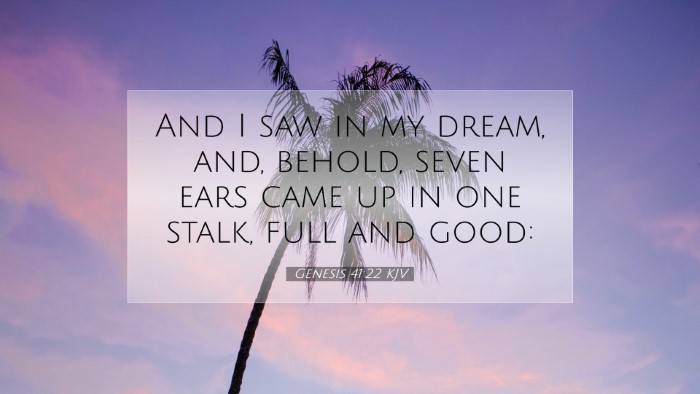Commentary on Genesis 41:22
Genesis 41:22: "I also saw in my dream, and, behold, seven ears of corn came up upon one stalk, rank and good."
Contextual Background
This verse is part of the narrative concerning the dreams of Pharaoh and Joseph’s interpretation of those dreams, which is a pivotal moment in the Genesis account. The context reveals the central themes of providence, revelation, and the sovereignty of God in the unfolding history of Israel.
Significance of Dreams in the Biblical Narrative
Dreams hold significant importance in the biblical narrative. They are often a means of divine communication:
- Divine Revelation: The dreams serve as a medium through which God communicates His plans. Joseph’s interpretation emphasizes God's control over future events.
- Prophetic Foreshadowing: Dreams function as a prophetic vehicle to inform characters of coming events, which in this instance pertains to famine and plenty.
Commentary Insights
Matthew Henry's Commentary
Matthew Henry emphasizes the providence of God as evident in Joseph’s interpretation. He notes that the seven good ears of corn represent prosperity and abundance. Henry posits that these dreams indicate the coming years of plenty, a sign of God’s mercy and favor towards Egypt and an opportunity for preparation.
Albert Barnes' Commentary
Albert Barnes provides a detailed analysis of the dreams mentioned in this chapter. Barnes points out the significance of the number seven in biblical terms, often symbolizing completeness or perfection. In this instance, the seven good ears suggest a complete cycle of abundance, indicative of God’s provision. He argues that the ears of corn are a precursor to the subsequent famine, revealing God's foresight and the need for strategic planning.
Adam Clarke's Commentary
Adam Clarke notes that the mention of "one stalk" signifies unity in the providence of God. The single stalk implies that the abundance stems from a singular source, which is God's will. Clarke’s commentary highlights the importance of recognizing divine favors in both times of plenty and times of scarcity, suggesting a theological reflection on the nature of God as sustainer and provider.
Theological Implications
The verse resonates with various theological implications relevant to pastors and scholars:
- The Nature of God’s Sovereignty: The dreams emphasize God’s ability to orchestrate events according to His purpose. This sovereignty provides assurance to believers that God is in control of history.
- Human Responsibility: While God reveals future events, the narrative also depicts human responsibility in responding to divine revelations. The interpretations lead to actionable steps for Joseph and Pharaoh, highlighting the partnership between divine sovereignty and human agency.
- Preparation and Wisdom: The abundance foretold by the dreams calls for preparation. This theme speaks to the wisdom necessary in both personal and corporate contexts, especially in times of favor and crisis.
Application for Pastors and Theologians
The practical insights derived from Genesis 41:22 extend into various areas of ministry and educational practice:
- Preaching on Divine Providence: Pastors can preach on the assurance of God’s providence in challenging times, using the narrative to illustrate God's foresight and care for His people.
- Encouraging Preparation: The theme of preparation encourages believers to take proactive steps in their spiritual lives, underscoring stewardship and wisdom in resource management.
- Understanding Dreams and Visions: For theologians, the biblical portrayal of dreams invites deeper exploration of the role of dreams in modern faith experiences and discernment.
Conclusion
Genesis 41:22 stands as a profound declaration of God's communication through dreams, emphasizing themes of abundance and divine preparation. The insights from public domain commentaries highlight the verse's relevance for understanding God's sovereignty and the necessity of human responsibility in responding to divine revelation. As such, this passage invites continued reflection and practical application in the lives of believers.


